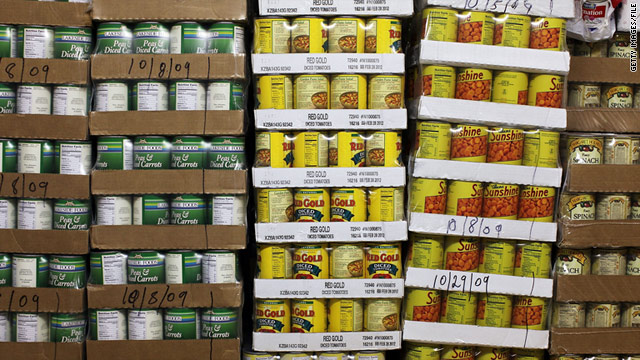Scammer
Banned

Bobby Herring said the homeless outreach program he and his wife run is in jeopardy after health officials in Houston shut it down because the operation didn't have a permit to serve food.
As MLK Day, typically a big day for outreach programs, approaches, Herring, a missionary and Christian rapper, said bureaucratic red tape has caused his program, Feed a Friend, to languish after 15 months of serving hot meals to the area homeless.
"It’s not us against them (health officials)," Herring said. "All we want is a solution to get back in action. We’re definitely not trying to start a fire, but I can't get the health department to call us back so we’re kind of in limbo."
Kathy Barton, a spokeswoman for the Health and Human Services Department, told CNN that the Herrings have not pursued a permit to serve food, at least not through the proper channels. "The Houston Health Department has had no interactions with the Herrings," she said in an e-mail Friday.
Herring and his wife, Amanda, have been down to the city's Health Department and have left messages with an official who has yet to call them back, Herring told CNN in a phone interview Friday.
Herring said he was told his operation would have to pay $17 a day for a permit, similar to event vendors.
"They (the homeless) are hungry. It’s freezing in Houston now, and the city doesn’t have to deal with it," he said. "The thing is, I think it’s sad that in order to give food to the homeless, we have to have a permit."
Herring said the homeless outreach program, which is part of his Eyes On Me nonprofit, had served food across from a jail for about a year when officers approached him, saying, they had "a better spot," he said. They moved him to a city park, closer to the city's homeless, but now under the jurisdiction of a park ranger. Two weeks ago, two police officers accompanied by a park ranger told him he couldn't serve food any longer.
At issue, both the city and the Herrings say, is how the food is prepared and where it comes from.
"It is our understanding that they are preparing food in individual homes rather than in licensed kitchens which have features that reduce the possibility of food-borne illness," Barton said.
Herring said it would be a logistical nightmare for his program, which operates with a core group of about 15 people, to get different kitchens certified on a weekly basis. "We get volunteers to cook in their homes," he said.
Herring said about 75 people benefit from the daily free meals that the program provides.
"We started off in November 2009. At the job of my wife, who I was dating at the time, there was an auction at the end of the year and there would be so much food left. She asked (her employer), 'Could I take this downtown?' and she did it for two weeks," he said. "And she asked God, 'If you provide the food, I'll continue the service, and God did," Herring said.
Herring said he's gotten volunteers to donate their time, food and kitchens. "There's no government funding or church funding. It’s purely organic," he said.
It is that organic quality that Houston health officials are wary of, according to Barton.
"The Houston Food Ordinance applies the same standards of food preparation and service for free food and purchased food," Barton said. "We do not have different standards of sanitation and food protection for poor people than those for people with money."
"We don't have meetings. We don't have a strategy. We're not experienced in this," Herring said. "It's just out of love."
"The Houston Health Department is pursuing an ordinance which would apply to public feeding operations like the one operated by the Herrings," Barton said. "This ordinance would require a no-fee registration of feeding operations for the poor. The Health Department would provide, at no cost, training for a certified food manager."
